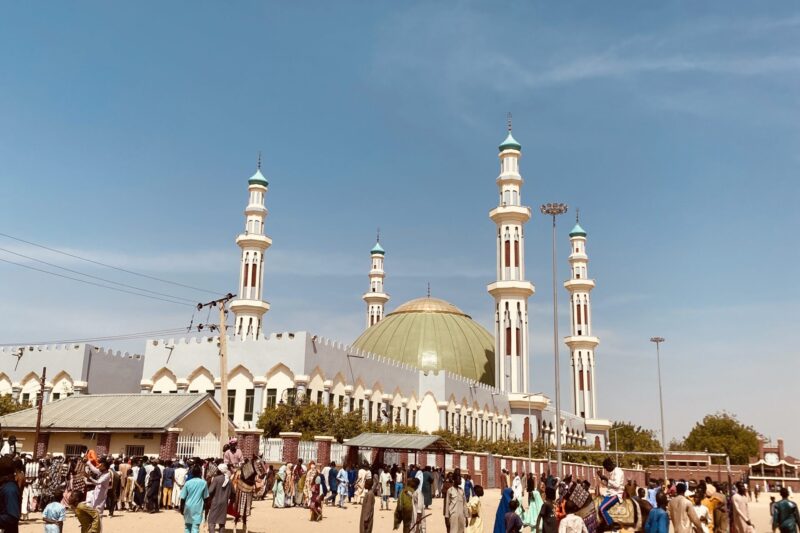The skyrocketing prices of fertiliser could exacerbate already high food prices and food availability.
So say farmers in Adamawa State, who told RNI reporter Abubakar Mustapha that the high prices were affecting the production of crops.
“If the price of fertiliser is so expensive, we will not be able to fertilise all the land and the harvest will be less, which will add to the already high cost of food,” a farmer said.
Malam Bilyaminu, the chairman of the Fufore Farmers’ Association, said the price hike had become a major challenge for farmers.
He said in previous years fertiliser was “more affordable”, the soil was fertile and there were bumper harvests.
Farmers in Fufore Local Government Area in Adamawa State were desperate to get back to their lands but the hike in fertiliser prices was a major “stumbling block”.
He said the soil was infertile, meaning every farmer needed to buy fertiliser if they wanted a bumper harvest.
“Poor people who want to farm cannot because they simply do not have enough money to buy fertiliser.”
But Bilyaminu warned the Rice Farmers’ Association of Nigeria (RIFAN), which runs an Outgrowers’ Programme to support agricultural production by providing necessary inputs, such as fertiliser, to check that the people whom they assisted were actual farmers.
He said some beneficiaries were not “real farmers” and they sold on the inputs received from RIFAN to others to make money for themselves.
Bilyaminu said many of the members of the Fufore Farmers’ Association blamed fertiliser dealers for the high prices.
Babagana Usman, a trader at the fertiliser market in Adamawa, said dealers were not to blame for the price hike. “It is the companies that sell it that are to blame,” he said.
He said a bag of fertiliser that used to sell at 9,000 naira now cost 12,000 naira; liquid fertiliser that cost 12,000 naira was now 17,000 naira.
Bilyaminu said the state and federal governments had to provide a sustainable solution to help provide farmers who needed fertiliser – and, he said, they needed it before the rainy season ended.
The Daily Trust quoted Nathaniel Ilem of the All Farmers’ Association of Nigeria as saying: “Nigerians should not expect a bountiful harvest of crops this year. As it is, we don’t know what to do. The increasing cost of fertiliser will affect the farmers and ultimately the common man. This means food security is threatened.”
- In a blog published by the World Bank in June it said most fertiliser prices had soared this year driven by strong demand and higher input costs. “Fertiliser prices are projected to average more than one quarter higher in 2021 than last year, before easing in 2022,” it said, adding that “fertiliser prices have also been bolstered by higher input costs. Phosphates raw material costs, particularly sulphur and ammonia, have increased sharply as refinery curtailments due to COVID-19 restrictions limited supplies.
- The United Nations Office for the Coordination of Humanitarian Affairs (OCHA) said in a weekly report on ReliefWeb in June that many Nigerian refugees had spontaneously returned to Nigeria through Adamawa State and that the its Food and Agriculture Organisation would be supporting thousands of households with seeds and fertiliser as part of broader efforts to strengthen food security during the lean season.
- RIFAN’s Outgrowers’ Programme supports farmers by offering them tractors for ploughing; provides inputs, including fertiliser; links farmers to banks for finance; and offers extension services, including supervision, consultancy and training.








